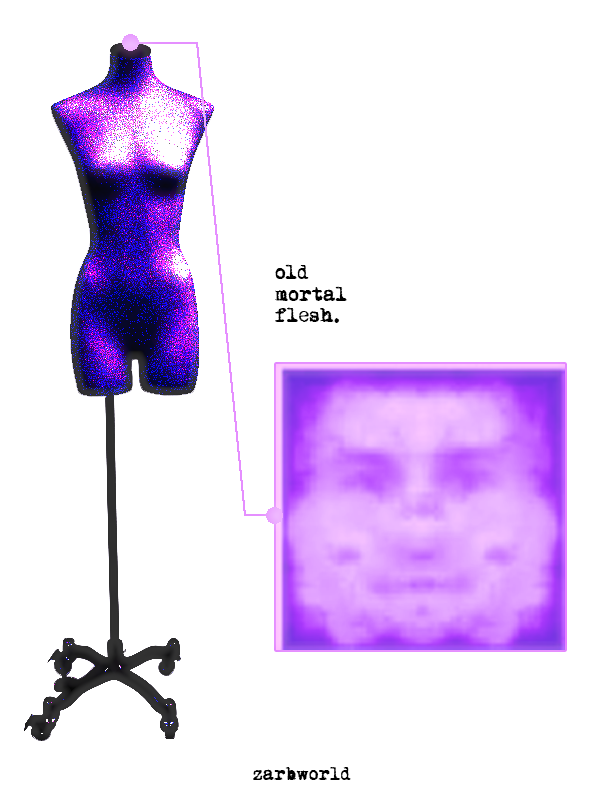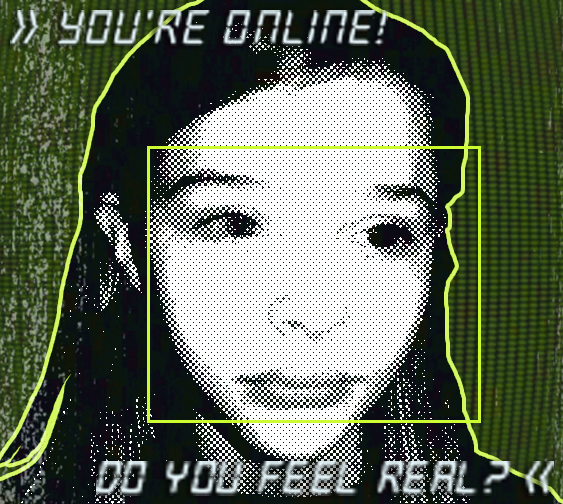Chapter 6: Spirit and Substance Embodiment
In such a time as now, we may begin to ask ourselves, “what differentiates man from machine?” One is flesh and bone, thinking and feeling, spirit and soul. The other is metal and wires, animated only by the varying levels of complex instruction that it may be imparted with. The worry of most is that this amalgam of metal, wires, and information processing will lead to entities that may surpass what humans are capable of, and that they will do so while mimicking us to such an extent that the conceptual categories of "Man" and "Machine" will become indistinguishable.

Eventually we will have systems that mimic human processes well enough that they cannot be told apart from an actual human doing the processing. That said, in such a scenario the categories of "Man" and "Machine" are merely being perceived as indistinguishable, but in reality it is still a machine doing the processing and not a human. In such a world, Man and Machine are still categorically separate.
As technology develops however, these two categories aren't just going to be perceived as indistinguishable, but rather they will collapse into one total category of entity in actual reality. I do not think that ultimately, there will remain a separation between Man and Machine, rather that Man will merge with Machine. Once this has fully taken place, it would become outdated to refer to ourselves as "human." At the point in time that man may merge with machine, we will have come to the times of the “posthuman.”
As artificial intelligence has become commercially available with models such as ChatGPT, many tech companies have swept in to compete for the increasing demand for Ai's functionality. But competitors have been met with a unique challenge which has resulted in a plateau of Ai progress. These models have become incredibly large and complex. In order to compute all of the data necessary for its further progress, companies investing in Ai tech are finding that they need extraordinary amounts of energy to maintain their position in the race towards superintelligence.
There are currently two ways that Ai developers can approach this problem. The first is to simply increase the supply of energy to fuel additional compute. The second is to revise the technology itself so that it may require less power to make the same level of computation. For the former, Ai developers are already beginning to invest in Nuclear Energy, for it will be able to supply the current tech with the energy required to keep pushing the edge of what is possible with Ai. This is politically controversial at the moment, which is slowing down development on this front. Developments on the latter approach however, are much more strange.
In order to surpass the current thresholds present with Ai technology, many institutions and biotech companies have begun to develop methods of computation with more organic forms of matter. This is called Organoid Intelligence (OI). Organoids are three dimensional structures grown from stem cells. These cell structures mimic the architecture of the organ that the cell structure organizes itself to resemble, and therefore can replicate some functions of that organ. This includes the human brain.
When we compare standard human intelligence to the intelligence of artificial computer systems, we find that although computers are much faster than humans at simple, linear computations, humans can process complex information much more efficiently, while consuming energy several magnitudes lower than machines in the process. If we are to surpass the present limitations of AI, it would be quite advantageous for us to look into our own brains, see how it functions, and attempt to emulate that functionality.
But what one must understand, is that once we can emulate the natural processes of the human brain in vitro we can begin to develop technologies that can exist in vivo. The implications of an organoid computer is that organic matter can be harnessed for computation, and in vivo, That likely implies that the converse is true; that the power of computation may be harnessed for organic matter. This means that our understanding of the mind and consciousness will become increasingly concretized and empirical. As this happens, we will not only map out our knowledge of these phenomena, but we will find novel forms of transforming them.
The boomers witnessed the mechanical prowess that emerged out of the world wars. Gen X consequently have gotten to witness the commercialization of computers. Millennials got to see the internet develop, and how fast that became an established part of our everyday lives. Gen Z grew up with more established platforms on the internet such as social media, where groups and information are more centralized. Generation Alpha, are getting familiar with the advantages of Artificial Intelligence (such as cheating in school). Each of these technologies that emerge from the timeline depend on the former to exist. What Ai is leading towards, and what the next generation will witness, is the rise and commercialization of Brain-computer interfaces (BCI).
This will lead to a new form of embodiment within the human individual. One might think to themselves now, that it is odd to imagine any other possible object for themselves to embody. However, if it is true the spirit may precede substance, it could very well be that BCI are the foundational technology that leads to boundless experience and/or multi-object embodiment. Or perhaps even multi-subject embodiment of objects. The subject may no longer be inconvenienced by their own body, rather they may choose which substance to inhabit, or may choose to inhabit no substance at all, or switch between many and no substances. Either way, one's perception of reality will be far different from the limited experience that the human body is capable of. There are colors not visible to the human eye, there is a God insensible to the human senses. The only possible way to continue measuring the universe, is to be able to see outside the curtains that the human body imposes.
I would also argue that all along this was the goal of humankind. Posthumanity is the next step in human evolution. If it is true that evolution has a purpose of “making sense of,” and that consciousness is the mechanism that drives that purpose forward, then one would understand that self-transformation in both the physical and metaphysical sense is inherently required. For, it is impossible in man’s current state to possibly begin to understand what the nature of reality is. The existential dread of man is too much for him to possibly go on without an effort of finding out what is behind the curtains of our own limited perception. He is tortured by the knowledge of his unknowing.
He asks questions, “what is the meaning of life,” “how is it possible that I exist?” These are questions that have physical responses in the body. One may have a pit in their stomach at the very thought of entertaining that kind of existential dread. But the answers to the questions do not exist in the body, they can only be understood through examination and experience of the matter. There may be a physical explanation for why one would have a response to those questions. Sure, certain neurons fire, certain neurotransmitters are being released. But meaning and impressions one gets, all precede that physical activity. There is something immaterial within us that beg these questions, and ultimately we are obligated to whatever it may be that is asking them.
In the Bible, God destroyed our tower to the heavens by creating various languages. But according to Nietzsche, God has been slain by our great awakening. We have our equations, we have our facts, we have our scientific method. And so, our empirical might up to now has culminated in the creation of machine language, in which we have streamlined the process of determining meaning. With it, we may now create a spire tall enough to reclaim God's vacant throne. What will we see when we take it? When we have mapped out everything that may be knowable, will man be satisfied? Will he be just as horrified?


